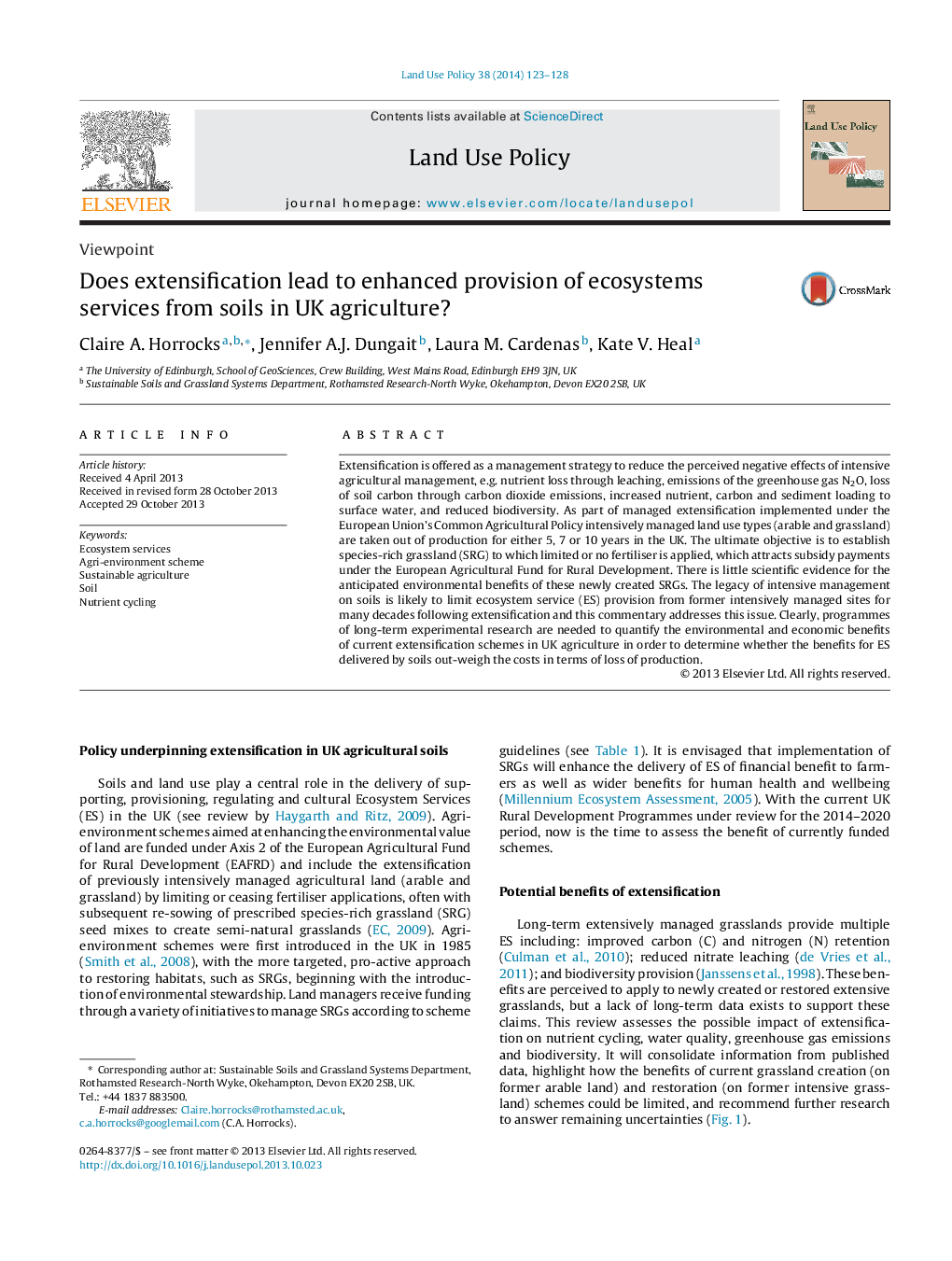| کد مقاله | کد نشریه | سال انتشار | مقاله انگلیسی | نسخه تمام متن |
|---|---|---|---|---|
| 6548727 | 160110 | 2014 | 6 صفحه PDF | دانلود رایگان |
عنوان انگلیسی مقاله ISI
Does extensification lead to enhanced provision of ecosystems services from soils in UK agriculture?
ترجمه فارسی عنوان
آیا گسترش دادن منجر به افزایش خدمات زیست محیطی از خاک های کشاورزی انگلستان می شود؟
دانلود مقاله + سفارش ترجمه
دانلود مقاله ISI انگلیسی
رایگان برای ایرانیان
کلمات کلیدی
خدمات محیط زیستی، طرح محیط زیست، کشاورزی پایدار، خاک دوچرخه سواری تغذیه
موضوعات مرتبط
علوم زیستی و بیوفناوری
علوم کشاورزی و بیولوژیک
جنگلداری
چکیده انگلیسی
Extensification is offered as a management strategy to reduce the perceived negative effects of intensive agricultural management, e.g. nutrient loss through leaching, emissions of the greenhouse gas N2O, loss of soil carbon through carbon dioxide emissions, increased nutrient, carbon and sediment loading to surface water, and reduced biodiversity. As part of managed extensification implemented under the European Union's Common Agricultural Policy intensively managed land use types (arable and grassland) are taken out of production for either 5, 7 or 10 years in the UK. The ultimate objective is to establish species-rich grassland (SRG) to which limited or no fertiliser is applied, which attracts subsidy payments under the European Agricultural Fund for Rural Development. There is little scientific evidence for the anticipated environmental benefits of these newly created SRGs. The legacy of intensive management on soils is likely to limit ecosystem service (ES) provision from former intensively managed sites for many decades following extensification and this commentary addresses this issue. Clearly, programmes of long-term experimental research are needed to quantify the environmental and economic benefits of current extensification schemes in UK agriculture in order to determine whether the benefits for ES delivered by soils out-weigh the costs in terms of loss of production.
ناشر
Database: Elsevier - ScienceDirect (ساینس دایرکت)
Journal: Land Use Policy - Volume 38, May 2014, Pages 123-128
Journal: Land Use Policy - Volume 38, May 2014, Pages 123-128
نویسندگان
Claire A. Horrocks, Jennifer A.J. Dungait, Laura M. Cardenas, Kate V. Heal,
